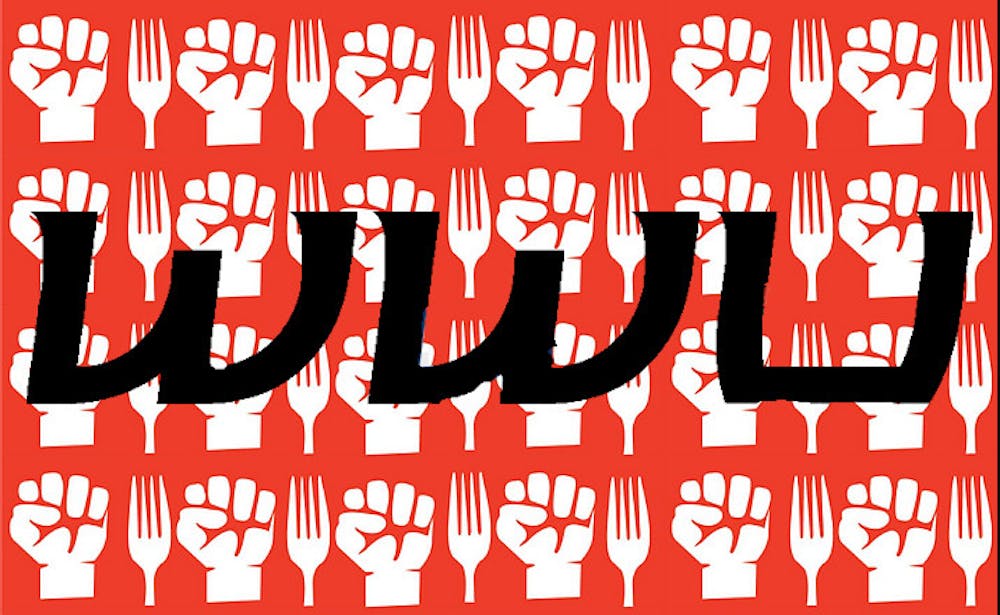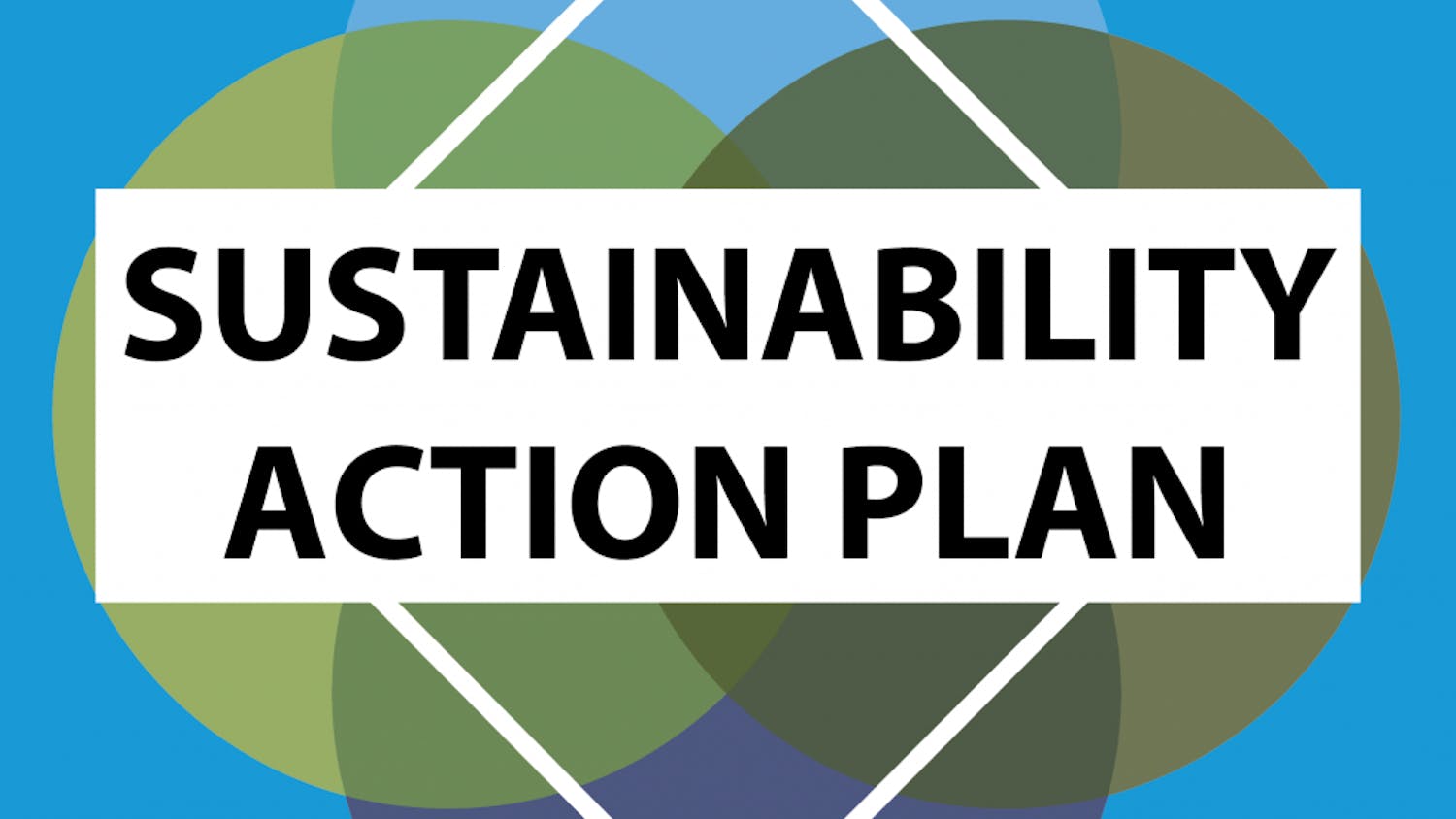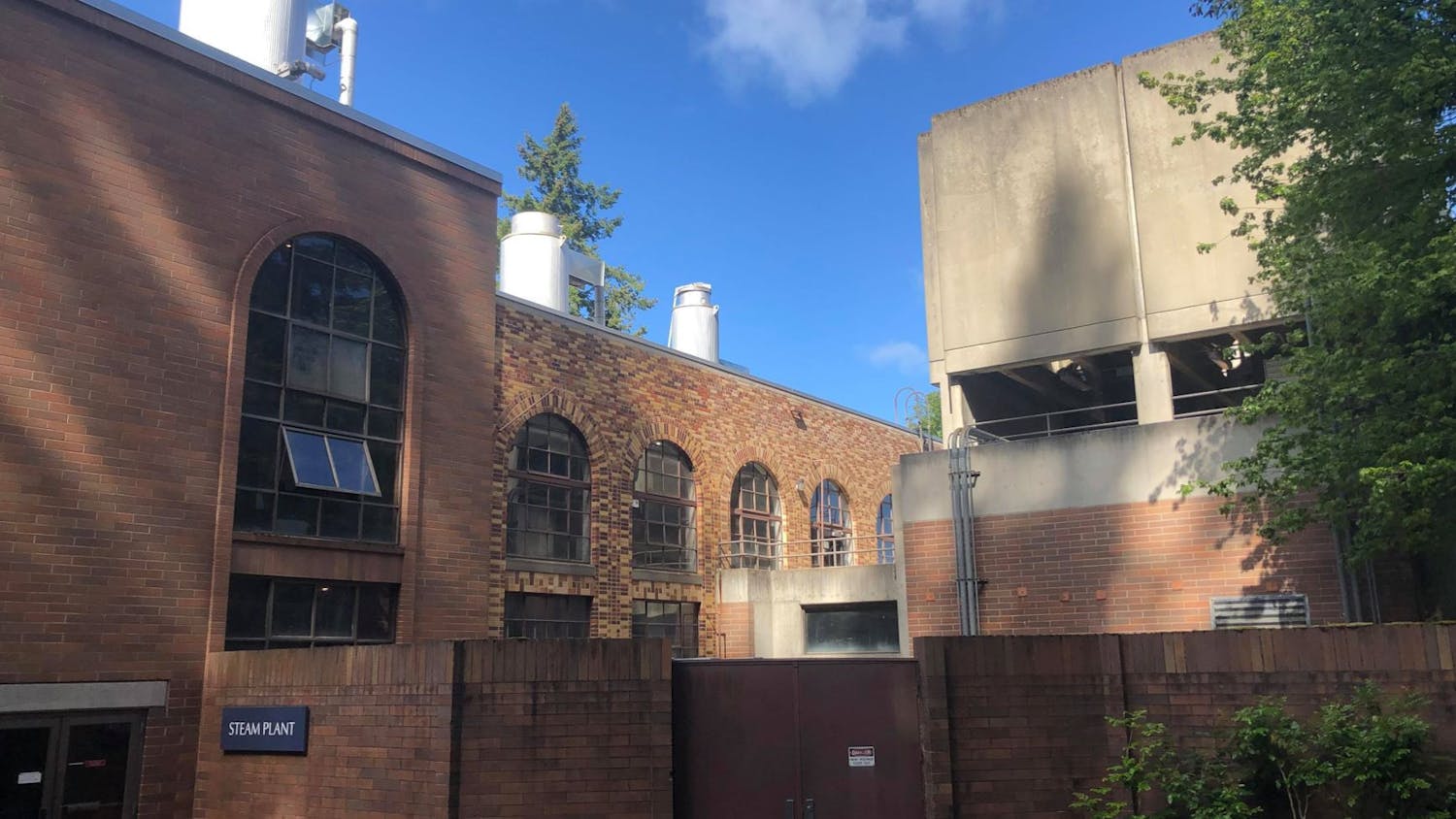In a survey of over 100 Western students, 70% report not knowing about the university’s Sustainability Action Plan written in 2015 and adopted in 2017.
The plan was written to identify goals and strategies to keep Western at the forefront of sustainable universities. The SAP provides a 20 year roadmap to a more sustainable university. Students, faculty and staff provided over 1,800 comments, suggestions and recommended actions that were integrated into the plan and contributed to reaching the strategic goals.
The plan has 10 sub-sections to cover all university practices. Those include, but are not limited to; waste, transportation, academics, student life and dining services.
Western has implemented several practices over the years to continue striving toward a more sustainable campus. Over time, and during the pandemic, the SAP has been moved aside for more pressing matters to take precedent.
Western prides itself on being on the U.S Environmental Protection Agency’s Green Energy List of Top Higher Education Purchasers of Renewable Power since it was launched in January 2006. In April 2016, Western was 20th on the EPA’s list of the top 30 green energy purchasers in higher education. In July 2018 Western came in at 29th on the list. Since then, Western has not been featured on the EPA Green Energy List.
Per Appendix C of Western’s Sustainability Action Plan, “Every two years, the [Sustainability Advisory Committee] will issue an update to the SAP which will be sent to the university president for approval. The SAC will make efforts to involve the Western public in the creation of these updates.”
Although the appendix states there will be a meeting and update to the SAP every two years, the Sustainability Advisory Committee last convened in 2018 and the plan has not been updated since it was approved by the Board of Trustees, said Johnathon Riopelle, the Sustainability, Equity, & Justice Fund Program Manager in the Office of Sustainability at Western.
The Western Associated Students College of the Environment is proposing a revamp to the current Sustainability Action Plan to maintain the plans’ long-term relevance to the university. The College of the Environment senators, Francis Neff and Laura Wagner, presented the resolution to the AS Student Senate and AS Board of Directors along with the Professional Staff Organization.
All parties voted in favor of the resolution to charge appropriate committees with implementing and revising the SAP as well as keeping students involved in the process. The resolution will move forward to President Sabah Randhawa and the Board of Trustees to be discussed on the agenda for the June Board of Trustees meeting on June 10 and 11.
While the College of the Environment is hoping to reignite the passion for the SAP, clubs and students are advocating for bigger changes coming to sustainability practices on campus.
Aramark is an American food service, facilities and uniform services provider to clients in areas including education, healthcare and prisons. They are also the primary dining services provider to Western students on campus.
Shred the Contract is an organization on Western’s campus that fights to dismantle the contract between Western and Aramark and promote an autonomous self-operated form of dining services.
Shred the Contract believes Aramark to be an unsustainable corporation that directly violates the Sustainability Action Plan’s dining services section.
Although students and Shred the Contract were hoping to end Western’s contract with Aramark when it was set to expire in September 2021, COVID-19 had other plans for the university.
Due to the ongoing pandemic, Western decided to extend the Aramark contract until September 2023, citing large budget deficits and decreased residence capacity. Albeit a small blow to morale, this gives College of the Environment senators and Shred the Contract members more time to make changes in favor of the university’s sustainability initiatives.
“If the SAP were to be updated with progress and timelines and added sections, we’re hoping to see language that specifies that the Aramark contract is unsustainable and see that the SAP says in written language there will be a transition to self-operated dining and they will develop a strategic plan to do so,” said Laura Wagner, AS College of the Environment Student Senator and member and co-leader of Shred the Contract.
Aramark has their own sustainability goals within the corporation. They have reportedly been making more efforts to invest in more small businesses and ecologically sustainable food delivery, such as using reusable containers.
However, sustainability isn’t the only reason students and clubs want the contract to be severed between the university and the corporation.
“Aramark contracts out to prisons, which means they profit from those incarcerated. There are many of us at Western who do not want any more money to go to these people, who only get richer when incarceration rates are higher, and find them deeply unethical,” said Julia Murray, a fourth-year at Western. “Since they provide food services to the whole campus, students don't have any other option but to support them financially, especially those in the dorms. Their history of exploitation, not just of the incarcerated but also of employees here at Western, should be replaced with an ethical system.”
Aramark’s controversial history using prison labor has been surfacing and creating debates for their clients. Aramark’s decision for a meal supplied to students at select institutions during Black History Month also caused friction between the company and those they serve.
Aramark serves over 400 colleges and universities in the U.S. and dominates the market for global food service contractors.
The Black Student Organization founded in 2020 supports shredding the contract. They are one of many student organizations that stand with Shred the Contract in ending Western’s connection with Aramark.
“We hope that the resolution letter convinces the Board of Trustees and the President to work with students to develop a strategic plan as soon as pandemic phasing allows, and we can create the necessary changes we’ve been pushing for,” said Anna Hedrick, AS Western At-Large Senator. “Also, since this aligns with an important BSO Demand, we must keep in mind that transitioning to self-operated dining and cutting ties with Aramark, not only serves in the interests of the entire student body but specifically Black students, as [Shred the Contract] values equity and justice and aligns with the university’s missions.
In Western’s 2021 winter quarter, Aramark tried to shut down the Fairhaven Dining Hall, igniting protests from students across campus. Instead of serving three meals a day, there would be one meal served per day in the south dining hall.
“There are people on the south campus that need to eat and a lot of people aren't able to make it to the north campus, especially in winter. This was based on Aramark’s predictions for the number of students that would be on a meal plan; they could shut down that location because they needed to save money and materials. There was a petition and they received backlash and they quickly backed down and realized it was poor judgement on their part,” Wagner said.
Clubs want to see more autonomy from Western and less private corporations making decisions that impact the student body.
Shred the Contract reports feeling unheard and unsupported by administration at the university.
“The [Shred the Contract] coalition and I agree that the administration has not been listening to the demands or taking STC seriously,” Hedrick said. “Administrators are concerned with the financial risks of cutting ties with Aramark, and they want to avoid overspending if we were to transition to self-operated dining. The Board of Trustees has been very resistant to STC in the past and has not been willing to work with students to develop a better dining system. Whenever STC is brought to the attention of the administrators, the issue is pushed aside and deemed unimportant by them, which has been frustrating.”
However, when the SAP was created, authors and contributors relied on the inputs of students and community members to form the best possible plan for the university. Student opinion and suggestion was imperative to the creation of the 122-page document.
“Student engagement with the SAP is critical to its fulfillment,” Riopelle said. “Western students should become familiar with SAP, identify where they can contribute to its goals, consider how these goals can be implemented to create a more sustainable university and discuss the SAP with the Western community.”
In a 2019 report of Western’s Campus Dining Services Analysis, Shred the Contract hoped to find information to support their argument that having a self-operated dining system would be possible and even cost-efficient. However, most information that could be useful is redacted, Wagner said.
The SAP’s progress has been slowed due to COVID-19, but some stay optimistic about the future of sustainability on campus.
“I do think good things can come out of the pandemic relating to the SAP, like the reinvigoration of movement on it,” said Natalie Sacker, Vice President of NetImpact and Lead Officer of Students for Renewable Energy. “I don’t know if this would have happened if we had a normal year in 2020.”
Read more about the SAP here.
Hannah VanOis a senior communications major with a public relations minor and reporter for The Front. Her work focuses on campus news. When not reporting, Hannah loves spending time with her pets and being outside. You can reach her at hannahvano.thefront@gmail.com






